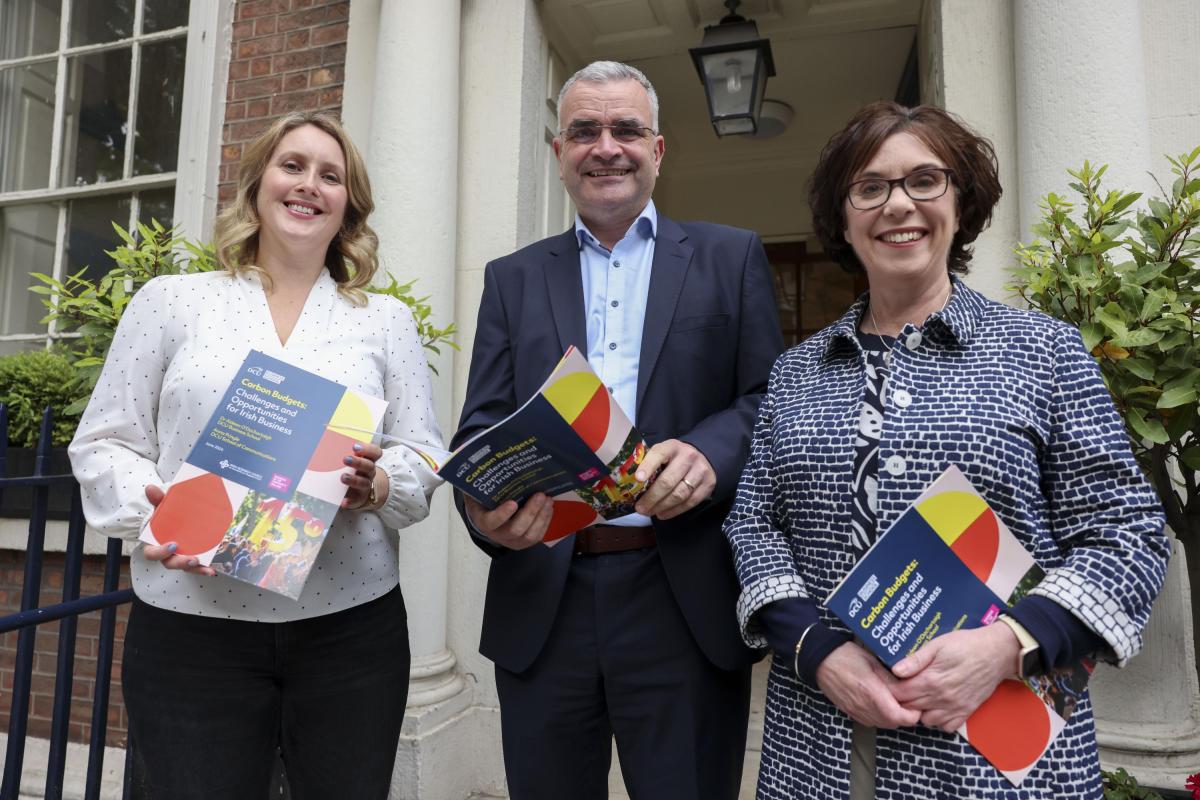

DCU Business School Carbon Budgets report highlights gaps between industrial development and climate change policy goals
A key emerging trend from the interviews with business experts and policy and state agencies, upon which the report is based, was fundamental conflicts between Ireland’s planned industrial development and climate targets. Furthermore, there has been a lack of honest conversation between government and business on how to tackle them.
Partnering with Business in the Community Ireland, Dr O’Dochartaigh and Pringle interviewed a range of organisations across sectors and types. They found that larger companies are struggling to control the emissions of their suppliers and customers, leading to tension. Additionally, smaller suppliers may feel pressured to reduce emissions without adequate support.
Government support is also crucial, with businesses calling for more incentives such as tax credits and low-interest loans. While a growing range of supports has been put in place, uptake has been relatively slow and there is scope for greater communication between business and government to release financing for organisations which need it most.
Launch night
The report was launched on the evening of 18th June at the Royal Irish Academy on Dawson Street. Following a welcome from Prof Barbara Flood, opening remarks by Minister Dara Calleary, and an overview from Dr Aideen O'Dochartaigh, Dr Diarmuid Torney chaired a panel featuring Dr O'Dochartaigh, Dr Darren Clarke, BITC CEO Tomás Sercovich, and CIE Chief Sustainability Officer Caoimhe Donnelly.
In the media
Dr Aideen O'Dochartaigh has written an opinion piece for the Irish Times based on the findings of this report.
Crucially, interviewees also felt a lack of coherent, holistic policy reconciling industrial development and climate targets. Currently, the numbers do not add up.
Having interviewed both sides, the report finds that businesses typically highlighted what policymakers could do for climate action, while policymakers talked about what business could do. With both sides looking to the other for change, the report makes key recommendations for policymakers and business:
The government is encouraged to forge a coherent direction for policy and to consolidate and strengthen domestic emissions policy in relation to business.
On the other hand, businesses are urged to take responsibility for emissions in a national context by examining emissions across their supply chains. In addition, larger companies can provide this support through incentives and partnerships to help suppliers decarbonise, and directing financing to support SMEs.
Minister of State for Trade Promotion, Digital and Company Regulation Dara Calleary TD said:
“This new research shows that there are significant business opportunities associated with climate action, including improved access to finance, new partnership opportunities, and boosting competitiveness. Many businesses, particularly small to medium-sized enterprises (SMEs), face challenges in seeking to reduce their greenhouse gas emissions, but there is plenty of help available. The report encourages businesses to leverage the range of funding supports now provided through SEAI, Enterprise Ireland and Local Enterprise Offices, to get good advice and to help address the costs.”
Dr Aideen O’Dochartaigh said:
“This report highlights the importance of business in supporting Ireland to achieve our climate targets. Many companies demonstrate their commitment to climate action through ambitious GHG emissions reduction targets, often focusing on Scope 1 (direct) and Scope 2 (purchased electricity) emissions, which are easiest to connect with the national carbon budgets. However they must recognise their holistic contribution to Ireland's emissions through their Scope 3 value chain emissions, particularly the impact they have on key national emissions sectors like Agriculture, Transport and Energy. The government is under increasing pressure from some companies and industry bodies over planned environmental measures relating to, for example, data centre energy use, the new Dublin city centre transport plan and maintaining the Dublin airport passenger cap. Large businesses are among the most powerful actors in our economy and they can take a leadership role in supporting climate policy and achieving the national climate targets.”
CEO of BITC Tomás Sercovich said:
“As the nature and climate crisis continues to demonstrate a multiplicity of severe social and economic impacts, there is a growing concern that ambition to halt the crisis is reversing. Carbon budgets are critical for aligning action across sectors, to determine impactful transition plans and to inspire others to engage in the decarbonisation agenda. The assessment of this report shows that leadership and cross industry collaboration, alongside working with policymakers is fundamental if we want to have a realistic chance of meaningful progress. Business in the Community Ireland is delighted to partner with DCU on this research and is keen on bringing together its 120-strong member company network to progress the implementation of carbon budgets across key sectors of our economy.”




